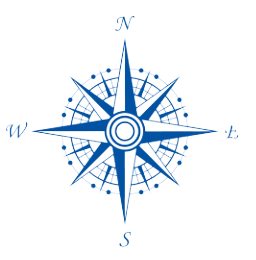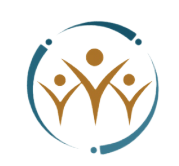Integrative Medicine
Yoga in the emergency room at the Eaubonne Hospital or hypnosis and auriculotherapy at the Pain Assessment and Management Center, Bicetre University Hospital in Paris, or developing integrative medicine at the Royal London Hospital, or in the Department of Medical Oncology in Haïfa, Israel, or at the Mind-Body Clinic in Boston (which is part of the Harvard Medical School), TOP (Human Potential Optimization Techniques) in the French Armed Forces ou even yoga in prison setting with the PrisonSmart experience...
More and more units around the world provide patients with Mind-Body practices in their care pathway, up to the point of developing a fully integrative medicine.
Simultaneously, patients resort to these pratices on their own and associate them more and more easily, particularly when a symptom becomes chronic.
The development of complementary and integrative practices is modifying the world's therapeutic scene – even changing our medical glossary, with more and more frequent uses of terms such as integrative health, integrative medicine, complementary medicine, complementary therapies, mind-body practices, integrativity...
In this integrative movement, we can point out three steps that make the world of care move initially from the notion of complementary medicine to integrative medicine, and then to the notion of integrative health. In these three fields, hypnosis has an important role to play.
The term 'complementary medicine' covers a broad range of health practices, usually referred to as CAM – Complementary Alternative Medicine; and is defined by the US National Institutes of Health and by the Cochrane Collaboration as follows: 'a large and diverse set of healing ressources that bring together all the systems, methods and health practices – including their theories and beliefs – that differ from those that are intrinsic to the politically dominant health system in a particular society or culture, at a specific period of history'.
As it is mentioned in the 2012 APHP report on complementary medicine, complementary treatments are often grouped together as follows [1]:
• According to the nature of the treatment (4 categories)
o Natural biological treatments (herbs and botanicals, dietary supplements, …)
o Mind-body treatments (hypnosis, yoga, ...)
o Manual body treatments (osteopathy, chiropractic, massage, ...)
o Other health practices and approches (traditional medicine, ...)
• According to the administering process (3 categories [2])
o Self-administered (herbs and botanicals, dietary supplements, meditation, self-hypnosis, …)
o Administered by a practitioner (hypnosis, acupuncture, massage, osteopathy, ...)
o Self-administered with regular supervision (yoga, biofeedback, self-hypnosis, Tai-Chi, …)
These practices are not integrated in the academic tradition, or in the dominant system of the country, and yet they are widely used by patients, especially when a symptom becomes chronic. They are thus identified as practices that are used as a complement to conventional medicine (theferore clearly different from alternative medicines, which are used instead of conventional medicine).
The notion of integrative medicine refers to integration – in patients' care pathways – of practices from conventional medicine and practices from complementary medicine – which are scientifically assessed as far as efficiency and security are concerned.
Intregrative medicine takes into account the person as a whole – body, mind and spirituality – and it develops a personalized approach, gathering the practices of both fields, while focusing on the therapeutic relation. Under this approach, the various aspects concerning the patients' way of life are taken into account, and prevention is a very important matter. The key word is interdisciplinarity - or how a team can bring all the necessary and adapted cares to patients – whether these cares are from medicine or from complementary practices.
This section will gather Cette rubrique rassemblera various experiences about integrative medicine
Isabelle Célestin-Lhopiteau
- Director of IFPPC, the French institute for Mind-Body Practices (www.ifppc.eu).
- Head of the University Diploma in Mind-Body Practices and Integrative Health Studies, Paris Sud University and Réunion University.
- Head of the University Diploma in Hypnosis and Anaesthesia, Paris Sud University.
- Psychologist and Psychotherapist, at the Pain Assessment and Management Center, Bicetre University Hospital, Paris.
- President of the association 'Thérapies d’Ici et d’Ailleurs' (Translatable by: 'Therapies from here and elsewhere').
Translated from French by Frédéric Delacour
[1] National Center for Complementary and Alternative Medicine http://nccam.nih.gov
[2] Manheimer E, Berman B. Cochrane Complementary Medicine Field. About The Cochrane Collaboration (Fields) 2008, Issue 2.Art. No.:CE000052








